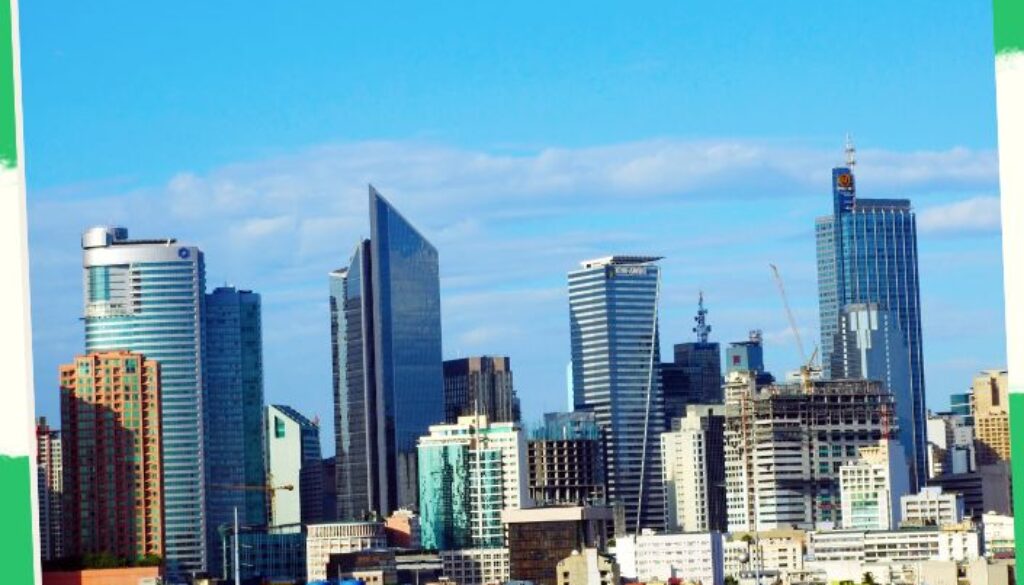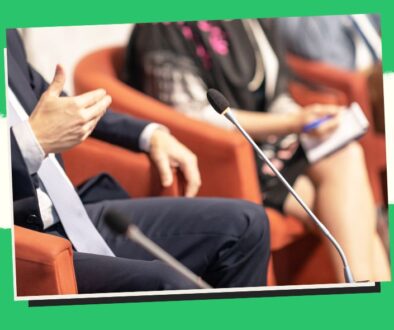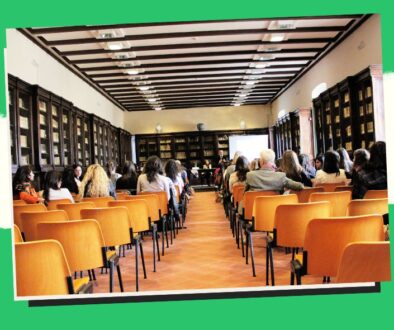Adapting Amid Adversity: How the Hospitality Industry in the Philippines Responded to COVID-19
Find out how the Philippine hospitality sector turned adversity into opportunity, implementing new safety protocols and innovative solutions to ensure guest satisfaction and safety.
Hospitality Industry’s Response to COVID-19 in the Philippines 🏨🦠
The COVID-19 pandemic has significantly impacted the hospitality industry worldwide, including the Philippines. With travel restrictions, health protocols, and safety concerns, hotels, resorts, and other hospitality establishments have had to adapt quickly to ensure the safety of guests and staff while navigating through unprecedented challenges. In this article, we explore the hospitality industry’s response to COVID-19 in the Philippines, highlighting key initiatives, safety measures, and strategies implemented to mitigate the impact of the pandemic.
Understanding the Impact of COVID-19 on the Hospitality Industry 🌐
The COVID-19 pandemic has brought unprecedented challenges to the hospitality industry, leading to a significant decline in travel and tourism. With travel restrictions, border closures, and public health concerns, hotels, resorts, and other accommodation providers in the Philippines have experienced a sharp decrease in occupancy rates and revenue.
Key Challenges:
- Decreased Demand: Travel restrictions and health concerns have resulted in a decline in bookings and occupancy rates.
- Financial Strain: Reduced revenue and increased operating costs have put financial strain on hospitality businesses.
- Adherence to Health Protocols: Implementing and enforcing strict health and safety protocols has posed logistical and operational challenges.
Initiatives to Ensure Guest and Staff Safety 🛡️
Enhanced Cleaning and Sanitization Protocols
Hospitality establishments have implemented rigorous cleaning and sanitization protocols to ensure the safety of guests and staff. This includes increased frequency of cleaning, disinfection of high-touch surfaces, and the use of EPA-approved cleaning products.
Tips:
- Train Staff Thoroughly: Provide comprehensive training on proper cleaning and sanitization procedures.
- Use High-Quality Products: Invest in EPA-approved cleaning products and disinfectants for effective sanitization.
Implementation of Contactless Services
To minimize physical contact and reduce the risk of transmission, hotels and resorts have implemented contactless services such as mobile check-in and check-out, digital key cards, and mobile payment options.
Tips:
- Upgrade Technology: Invest in technology solutions that enable contactless services, such as mobile apps and digital key systems.
- Communicate with Guests: Clearly communicate contactless service options to guests through website, email, and signage.
Temperature Screening and Health Checks
Many hospitality establishments conduct temperature screening and health checks for guests and staff upon entry. Anyone exhibiting symptoms of COVID-19 is advised to seek medical attention and may be denied entry.
Tips:
- Provide Personal Protective Equipment (PPE): Offer face masks, gloves, and hand sanitizers to guests and staff.
- Follow Health Guidelines: Adhere to local health guidelines and regulations regarding temperature screening and health checks.
Adaptation of Operational Practices and Services 🔄
Flexible Cancellation Policies
To accommodate changing travel plans and uncertainty, hotels and resorts have implemented flexible cancellation policies, allowing guests to modify or cancel bookings with minimal penalties.
Tips:
- Communicate Policies Clearly: Clearly communicate cancellation policies on your website, booking platforms, and reservation confirmations.
- Offer Refund Options: Provide options for refunds, credits, or rescheduling to accommodate guests’ needs.
Introduction of Virtual Events and Experiences
In response to restrictions on gatherings and events, hospitality establishments have introduced virtual events and experiences to engage guests remotely. This includes virtual tours, online cooking classes, and digital wellness programs.
Tips:
- Promote Online Offerings: Utilize social media, email marketing, and your website to promote virtual events and experiences.
- Collaborate with Experts: Partner with chefs, fitness instructors, and other experts to create engaging virtual content.
Implementation of Social Distancing Measures
Hospitality establishments have implemented social distancing measures in public areas such as lobbies, restaurants, and pool areas. This includes rearranging furniture, limiting capacity, and marking floors to maintain distance.
Tips:
- Redesign Layouts: Rearrange furniture and fixtures to facilitate social distancing in public areas.
- Enforce Capacity Limits: Monitor occupancy levels and implement capacity limits in accordance with local regulations.
Collaboration with Government and Health Authorities 🤝
Adherence to Government Guidelines
Hospitality establishments closely follow guidelines and directives issued by government and health authorities to ensure compliance with health and safety protocols. This includes guidelines on sanitation, social distancing, and capacity limits.
Tips:
- Stay Informed: Regularly monitor updates from government and health authorities to stay informed of any changes or new guidelines.
- Train Staff on Regulations: Provide ongoing training to staff on the latest regulations and protocols.
Collaboration with Health Authorities
Hotels and resorts collaborate with local health authorities to implement COVID-19 testing, contact tracing, and vaccination programs. This partnership helps ensure the safety and well-being of guests and staff.
Tips:
- Facilitate Testing and Tracing: Provide assistance and resources to facilitate COVID-19 testing and contact tracing efforts.
- Promote Vaccination: Encourage staff and guests to get vaccinated by providing information and resources on vaccination sites and schedules.
Marketing and Communication Strategies 📢
Reassurance Messaging
Hospitality establishments communicate reassurance messaging to guests through various channels, including websites, social media, and email. This includes information on enhanced cleaning protocols, contactless services, and flexible cancellation policies.
Tips:
- Be Transparent: Provide honest and transparent information about the measures you’re taking to ensure guest safety.
- Address Concerns Promptly: Respond promptly to guest inquiries and concerns about safety and hygiene measures.
Promotional Offers and Packages
To stimulate demand and attract guests, hotels and resorts offer promotional offers and packages, such as discounts, complimentary amenities, and flexible booking options.
Tips:
- Tailor Offers to Current Trends: Create offers and packages that align with current travel trends and preferences.
- Highlight Safety Measures: Emphasize safety and hygiene measures in your promotional materials to reassure guests.
Community Engagement and Support
Hospitality establishments engage with the local community and support frontline workers and vulnerable groups affected by the pandemic. This includes donations, volunteer initiatives, and partnerships with local organizations.
Tips:
- Support Local Initiatives: Partner with local charities and organizations to support community efforts in response to COVID-19.
- Engage Staff in Volunteer Activities: Encourage staff to volunteer their time and skills to support community initiatives.
Benefits of the Hospitality Industry’s Response to COVID-19
- Guest Safety 🛡️
Enhanced health and safety protocols provide peace of mind to guests, ensuring their well-being during their stay. - Employee Protection 👷
Measures such as personal protective equipment (PPE) and regular testing protect hotel staff from the risk of infection. - Adaptability and Resilience 💪
The industry’s ability to adapt to changing circumstances and implement new protocols demonstrates resilience in the face of adversity. - Innovation 🚀
The pandemic has spurred innovation in areas such as contactless check-in, virtual events, and remote work amenities. - Community Support 🤝
Hotels have played a role in supporting their communities, such as providing accommodation for front-line workers or offering food donations. - Operational Efficiency 📈
Streamlined operations and reduced capacities have led to increased efficiency in hotel management. - Digital Transformation 📱
Accelerated digital adoption has led to improvements in online booking systems, guest communication, and virtual experiences. - Environmental Sustainability 🌱
Reduced energy consumption and waste production during periods of low occupancy have contributed to environmental sustainability efforts. - Crisis Management Preparedness 🚨
The experience gained from navigating the pandemic has equipped hotels with better crisis management strategies for the future. - Customer Loyalty 🤝
Guests appreciate the efforts made by hotels to ensure their safety and comfort, fostering loyalty and positive reviews.
Case Studies in the Philippines
Shangri-La Hotels and Resorts 🏩
Shangri-La implemented rigorous health and safety protocols, including temperature checks, social distancing, and enhanced cleaning procedures, across its properties in the Philippines.
Solaire Resort & Casino 🎰
Solaire introduced a digital contact tracing system and upgraded ventilation systems to ensure a safe environment for guests and employees.
Hilton Manila 🏨
Hilton Manila launched the “CleanStay” program, which includes enhanced cleaning protocols and contactless experiences for guests.
The Peninsula Manila 🏩
The Peninsula Manila transformed its restaurants into gourmet markets, offering ready-to-cook meals and fresh produce to customers during lockdowns.
Discovery Suites Ortigas 🏨
Discovery Suites provided accommodation for healthcare workers and front-line staff, offering discounted rates and complimentary meals.
Ascott Makati 🏢
Ascott Makati implemented remote check-in and check-out procedures to minimize physical contact between guests and staff.
Conrad Manila 🏨
Conrad Manila introduced flexible booking policies and extended loyalty program benefits to provide added value to guests during uncertain times.
Okada Manila 🎰
Okada Manila partnered with local organizations to provide food donations and support for communities affected by the pandemic.
Marco Polo Ortigas Manila 🏩
Marco Polo Ortigas implemented stringent health and safety measures, including regular testing for employees and guests, to prevent the spread of COVID-19.
The Bellevue Manila 🏨
The Bellevue Manila invested in employee training and mental health support programs to ensure the well-being of its staff during the pandemic.
Key Takeaways
- Prioritize Health and Safety 🩺
The safety of guests and employees should be the top priority for hotels during the pandemic. - Flexibility is Key 🔄
Flexible booking policies and cancellation options are essential to accommodate changing travel plans. - Communication is Essential 📢
Clear and transparent communication with guests about health protocols and safety measures builds trust and confidence. - Adapt Quickly to Changing Conditions 🌪️
Hotels must be prepared to adjust operations in response to evolving government regulations and public health guidelines. - Embrace Technology 📱
Digital solutions such as contactless check-in, mobile room keys, and virtual experiences enhance safety and convenience for guests. - Support Local Communities 🤝
Hotels can contribute to community relief efforts through donations, accommodation for front-line workers, and other initiatives. - Focus on Employee Well-being 👨💼
Providing support for staff, including mental health resources and flexible work arrangements, is crucial during times of crisis. - Maintain Brand Reputation 🏅
Upholding high standards of cleanliness and safety helps protect the reputation of hotels and resorts. - Plan for Recovery 📈
Despite current challenges, hotels should develop strategies for recovery and future growth in the post-pandemic era. - Stay Resilient 💪
The hospitality industry has overcome many challenges in the past and will emerge stronger from the current crisis with resilience and perseverance.
FAQs About the Hospitality Industry’s Response to COVID-19 in the Philippines
What safety measures are hotels implementing to protect guests from COVID-19?
Answer: Hotels are implementing enhanced cleaning protocols, temperature checks, social distancing measures, and contactless experiences.
Are hotels offering flexible booking policies during the pandemic?
Answer: Yes, many hotels have introduced flexible booking options and relaxed cancellation policies to accommodate changing travel plans.
How are hotels supporting front-line workers during the pandemic?
Answer: Some hotels are providing accommodation, meals, and discounted rates for front-line workers and healthcare professionals.
What digital solutions are hotels using to enhance safety and convenience for guests?
Answer: Hotels are implementing contactless check-in and check-out procedures, mobile room keys, and virtual experiences.
How can guests stay informed about health protocols and safety measures at hotels?
Answer: Hotels are communicating health protocols and safety measures to guests through their websites, social media, and email communications.
Are hotel restaurants and amenities open during the pandemic?
Answer: Many hotels have reopened their restaurants and amenities with reduced capacities and enhanced safety measures in place.
What support are hotels providing to local communities affected by the pandemic?
Answer: Hotels are contributing to community relief efforts through donations, food distribution, and accommodation for front-line workers.
Are hotels providing support for employees affected by the pandemic?
Answer: Yes, hotels are offering support for employees, including mental health resources, flexible work arrangements, and financial assistance.
How are hotels preparing for recovery and future growth post-pandemic?
Answer: Hotels are developing strategies for recovery, including marketing campaigns, promotions, and partnerships to attract guests once travel resumes.
What can guests do to support hotels and the hospitality industry during the pandemic?
Answer: Guests can support hotels by booking directly, following health protocols, providing feedback, and promoting positive experiences on social media.
Conclusion 🌟
The hospitality industry in the Philippines has demonstrated resilience, adaptability, and innovation in response to the challenges posed by the COVID-19 pandemic. Through the implementation of stringent health and safety measures, adaptation of operational practices, collaboration with government and health authorities, and strategic marketing and communication efforts, hotels, resorts, and other hospitality establishments have prioritized the safety and well-being of guests and staff while navigating through uncertain times.
As the hospitality industry continues to recover and rebuild, it is essential to remain vigilant, adaptable, and responsive to evolving circumstances. By maintaining a focus on safety, flexibility, and guest experience, the hospitality industry in the Philippines will emerge stronger and more resilient in the post-pandemic era. Together, we can overcome the challenges posed by COVID-19 and usher in a new era of hospitality excellence in the Philippines. 🏨🇵🇭
Key Phrases
- “hospitality industry COVID-19 Philippines”
- “Philippine hotels response to COVID-19”
- “COVID-19 impact on Philippine tourism”
- “hospitality sector pandemic response Philippines”
- “adaptation strategies hospitality industry”
- “Philippine tourism industry challenges”
- “innovations in hospitality sector Philippines”
- “resilience of Philippine hospitality industry”
- “Philippine tourism recovery efforts”
- “safety protocols for hotels COVID-19”
Best Hashtags
- #HospitalityResponsePH
- #PhilippineHotelsCOVID19
- #TourismSafetyPH
- #AdaptationStrategies
- #ResilientHospitality
- #PhilippineTourismRecovery
- #InnovationsInHospitality
- #SafetyProtocolsPH
- #HospitalityCommunity
- #COVID19PHImpact

DisclaimerThe information is for educational purposes only and subject to change, and it is highly recommended to consult local authorities for the latest and most accurate updates. We do not constitute endorsement of any specific technologies or methodologies or endorse of any specific products or services.Work With UsWe’re always looking for new, exciting ways to collaborate with partners who share our enthusiasm for the Philippines. Work with us and explore exciting opportunities and join us in showcasing the Philippines to the world! |



